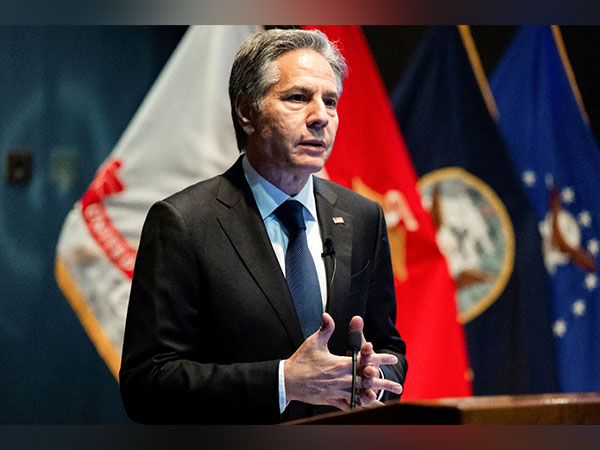Antony Blinken's Europe Tour: Strengthening Support for Ukraine Amid Rising Tensions
U.S. Secretary of State Antony Blinken commenced a Europe tour in Chisinau, Moldova, focusing on bolstering support for Ukraine amid Russian aggression. The visit underscores U.S. backing for Moldova’s European ambitions and energy independence, while upcoming NATO meetings aim to enhance Ukraine's military capabilities and push for its EU membership.

U.S. Secretary of State Antony Blinken landed in the Moldovan capital Chisinau on Wednesday, the first stop on a brief Europe tour aimed at solidifying Western support for Ukraine across NATO allies and neighbouring countries. The top U.S. diplomat's trip comes as Ukraine is trying to fend off intensifying Russian attacks in the east and President Vladimir Putin warns that allowing Kyiv to use Western weapons to strike inside Russia could trigger a global conflict.
In Chisinau, Blinken will meet pro-European President Maia Sandu and other senior officials at a time when U.S. officials say the ex-Soviet republic of 2.5 million, which has a long border with Ukraine, faces Russian "influence operations". Jim O'Brien, the top U.S. diplomat for Europe at the State Department, told reporters on Friday that the United States would likely announce a "robust package" of support for Moldova's energy independence, without elaborating.
Under Sandu, Moldova has staunchly condemned Russia's invasion of Ukraine and set its sights on joining the European Union. It has sharply reduced its dependence on Russian natural gas and is diversifying its sources of electricity supply. O'Brien added that Washington has not seen a direct military threat from Russia toward Moldova's breakaway region of Transdniestria where Moscow has had a force of peacekeepers and soldiers on the ground since a war in the early 1990s.
Moldova, which holds a referendum in October to cement its bid to join the EU into its constitution, is a vocal supporter of Ukraine and sees its security as closely tied to Kyiv's ability to hold back Russian forces. "Support for Ukraine equals support for Moldova, but it also works the other way round. Supporting Moldova strengthens Ukraine because Ukraine needs a strong, democratic Moldova and a supportive neighbour because we share a 1,200-km border," said Olga Rosca, the Moldovan president's foreign policy adviser.
She told Reuters Blinken's visit was a "very strong sign of support but also for the choices the Moldovans have been making in terms of the democratic path and their EU aspirations". NATO GATHERING
Later in the week, Blinken will travel to Prague to attend an informal gathering of NATO foreign ministers, which will focus on advancing preparations ahead of a July summit of the alliance in Washington. "We do not anticipate that there'll be an invitation for Ukraine to join NATO, but we think there will be a substantial show of support for Ukraine as it works to win its war," O'Brien said.
"This will include ongoing NATO support in building Ukraine's future force and efforts to help Ukraine as it makes the reforms needed so that it's able to join the EU and run across the bridge to NATO as quickly as it's able." The United States has been working with European allies to help Ukraine build its long-term force, efforts that would bring Kyiv closer to NATO. Individual members including the United States are working to reach bilateral agreements with Ukraine.
More than two years into the deadliest war in Europe since World War Two, Western allies are debating how to stop Russian military advances and Putin is increasingly evoking the risk of a global war. One critical issue has been whether the allies would allow Ukraine use the weapons they provide to strike inside Russia, a topic that might be discussed at the Prague meeting.
In comments to The Economist, NATO Secretary General Jens Stoltenberg urged alliance members to allow Ukraine to use their weapons inside Russia, a view supported by some European members of the transatlantic alliance but not the United States.
(This story has not been edited by Devdiscourse staff and is auto-generated from a syndicated feed.)
ALSO READ
Ukraine's Defense Holds Firm Against Russian Drone Barrage
Shocking Turn in Romanian Elections: Russian-Backed Candidate Wins First Round
Interruption in Russian Crude Oil Supply to Czech Refinery
Putin Applauds Make in India: A Boost for Russian Investments
Putin Praises Modi's Economic Efforts, Offers Russian Manufacturing in India










